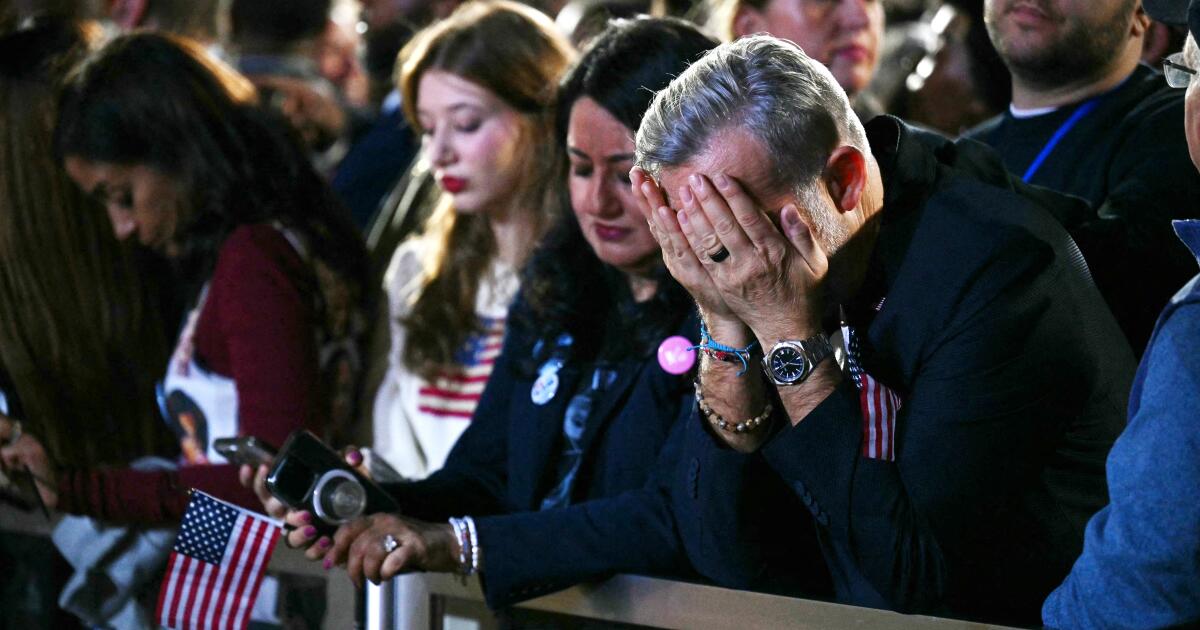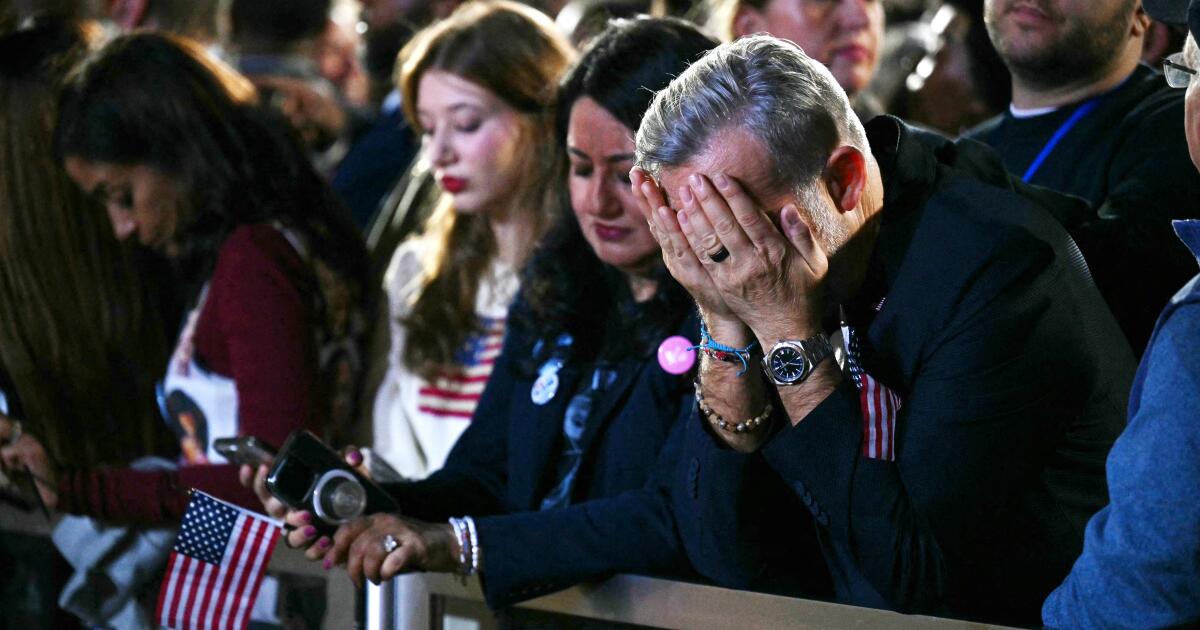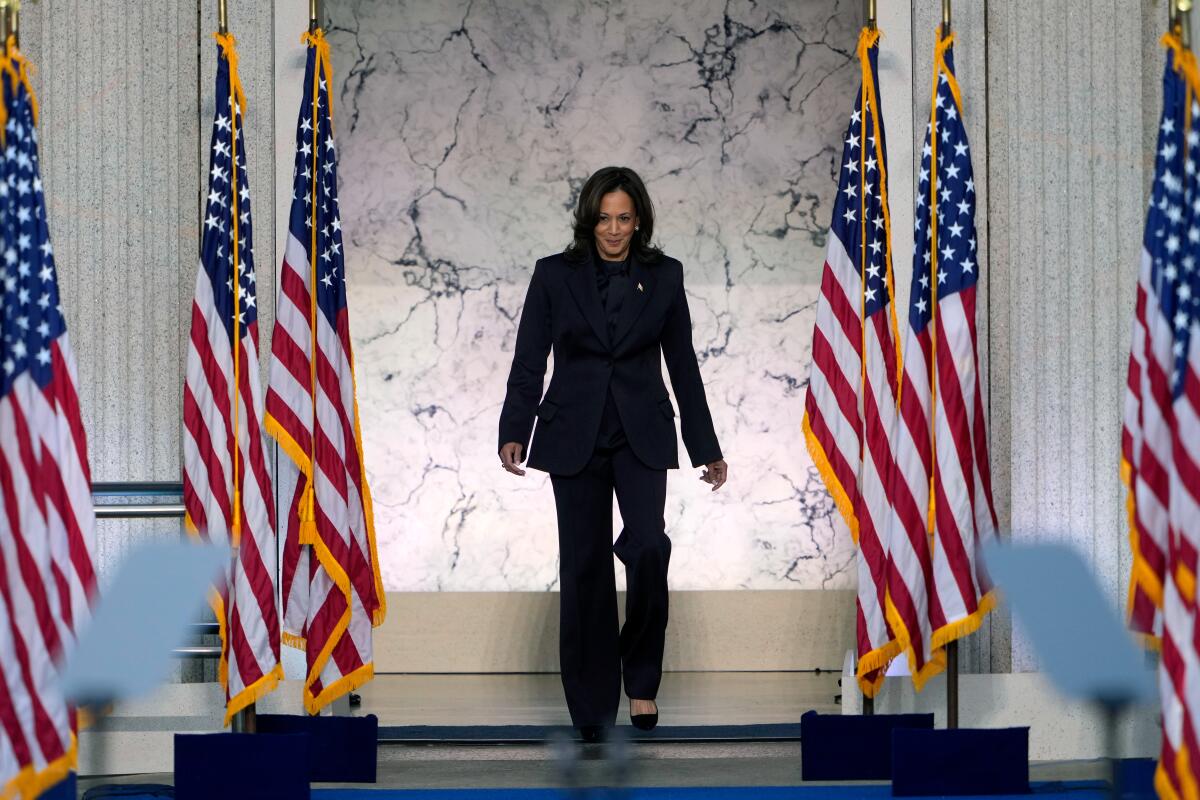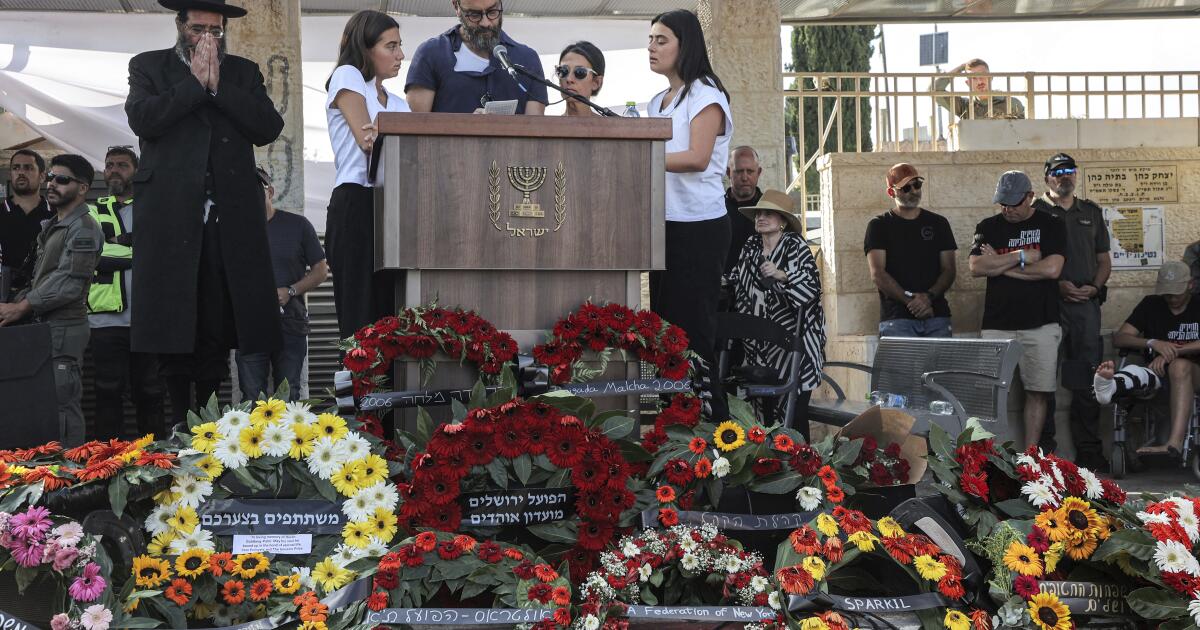
WASHINGTON — Revelers attending the Harris-Walz campaign’s election party at Howard University began the night looking to celebrate the election of the first Black woman to the presidency. By midnight, though, their enthusiasm had curdled, turning to despair, as Republican presidential nominee Donald Trump secured sizable leads in several battleground states, seemingly putting him on a path to victory.
Kamala Harris, a Howard alumna, had been expected to speak but never took the stage at the Yard, a large open space on the Washington, D.C., campus. Instead, Cedric Richmond, co-chair of the vice president’s campaign, addressed a dwindling audience that had once numbered in the thousands.
“We still have votes to count, we still have states that have not been called yet,” Richmond said in brief remarks that began around 12:40 a.m. “We will continue to fight to make sure that every vote is counted.”
Hours earlier, the possibility that Harris might become the first president to graduate from a historically Black college or university had animated much of the action on the Yard, where students and alumni were dancing even before Howard’s gospel choir sang “Lift Every Voice and Sing,” the hymn adopted by some as a Black national anthem.
Yet from the start, the scene at Howard was suffused with nervous energy, much of it directed toward a large screen showing CNN’s election coverage. People grew increasingly anxious, and the festivities were dampened when the network’s John King said that Harris trailed President Biden’s performance in the 2020 election in key areas.
As television networks called several key states for Donald Trump — and showed him leading in others — the partygoers’ excitement was blunted. By 11 p.m., the mood had darkened considerably — the dancing had long since stopped — and attendees watched in near silence as the CNN telecast projected an increasingly narrow path to victory for Harris.
Ayanna Mitchell, 31, a Washington, D.C., resident, said she “definitely had hope” at the start of the night, but found it “ridiculous that people still are voting for Donald Trump.”
“I don’t think people are comfortable with a woman, especially a woman of color, being president,” she said.
South Carolina native Nicole Harrison, 42, who wore a sparkly blue and gold jacket, recalled living through Trump’s presidency, and the fear some people felt while walking the streets of Washington.
“That’s the scary part about it — safety,” said Harrison, who graduated from the University of South Carolina.
“Someone’s going to be upset,” she said, adding that she hoped people channel their frustrations into change, not violence. “I don’t want to live like that again.”
The event, which began before 7 p.m., had been a showcase for Howard and the wider network of schools catering to mostly African American students. Many attendees wore their sorority or fraternity colors — a celebration of a storied strand of Black culture in America.
Early on, several people told The Times about their admiration for Harris — and the pride they felt watching the Democratic nominee strive for a historic breakthrough.
“It means so much more than you can imagine,” said Marissa Jennings, 43, who grew up in the Crenshaw neighborhood of Los Angeles and attended Bennett College, a historically Black institution in North Carolina.
Jennings recounted parts of Harris’ biography — how she was born and raised in California, attended an HBCU, and served as both a senator and vice president. And now, she said, Harris had “the opportunity to become the first woman and first African American woman president.”
“It was something I couldn’t have dreamed of,” she said.
Harris’ time at Howard — she graduated from the school in 1986 — helped shape her political identity. During her unsuccessful bid for the Democratic presidential nomination in 2019, Harris took to telling voters that her toughest political race was at the university, where she won a seat on the Liberal Arts Student Council during her freshman year, The Times has reported. At the time, Howard was a crucible of political activism.
“I reference often my days at Howard to help people understand they should not make assumptions about who black people are,” Harris told The Times in 2019.
The vice president was also a member of the Howard chapter of the Alpha Kappa Alpha, the country’s first Black sorority. Among attendees at the Tuesday night event were many women wearing the organization’s signature salmon pink and apple green colors.
“I wanted to be a part of history — good, bad or indifferent,” said Camille Thelemaque, 38, a graduate of North Carolina A&T State University, a historically Black institution. “I thought it was my place to be here and celebrate Black achievement, achievement as an American, achievement as a woman.”
Before King’s sobering pronouncement, the crowd danced to music by Prince, Missy Elliott and Ciara — and cheered whenever the CNN telecast revealed that Harris was projected to win a state. But there were choruses of boos each time CNN announced that Trump was projected to pick one up.
And those calls soon mounted.
Mehta and Bierman reported from Washington and Miller from Los Angeles.



